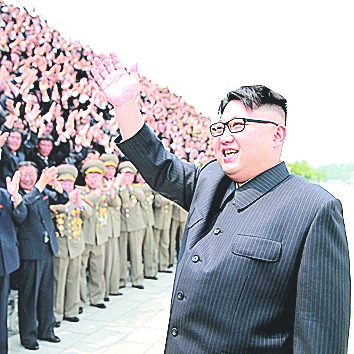
• India Dissents: 3,000 Years of Difference, Doubt and Argument (Speaking Tiger, Rs 499) edited by Ashok Vajpeyi is just the book for the times. It presents the voices of those who have, over the years, persisted against all attempts to muzzle them. The collection contains letters, essays, reports, songs, poems and even calls to action by writers such as Ambedkar, Tagore, Mahasweta Devi and Manto on the one hand to Gautam Buddha and Guru Nanak on the other. The collection reiterates that plurality - be it in the multiplicity of gods that are worshipped or the diversity of the languages that are spoken - has always been a characteristic of Indian civilization. It also establishes the need for dissent and the importance of debate. But the most significant contribution of this book is that it tries to break the myths being propagated about texts and icons that have been appropriated into the majoritarian discourse. The introduction by the author and poet, Ashok Vajpeyi, neatly ties together the various strands of thought that emerge from the book.
• The Indian Spy: The True Story of the Most Remarkable Secret Agent of World War II (Aleph, Rs 599) by Mihir Bose adds yet another fascinating chapter to the mystery surrounding Subhas Chandra Bose. The author sets about reconstructing the life of Bhagat Ram Talwar, nicknamed Silver by the British intelligence, who helped Netaji escape to Kabul. Mihir Bose argues that Talwar was the only quintuple spy of the Second World War - spying for Britain, Germany, Italy, Japan and the erstwhile Soviet Union.
In the intriguing world of espionage, Talwar stands out not only for the sheer audacity of what he managed but also how he got away with it. Talwar is also the perfect example of youthful idealism gone wrong. Once a member of the Young Indian Association founded by Bhagat Singh, Talwar grew bitter with the soft politics of the Congress. At the heart of the book is the relationship that Talwar shared with the two men who shaped his life - Netaji and Peter Fleming, his handler and the brother of James Bond's creator, Ian Fleming. The book is well-researched and makes for thrilling - if slightly fantastical - reading.

• Britt-Marie was Here (Sceptre, Rs 399) by Fredrik Backman is the latest book from the Swedish author who won many accolades for his first novel, A Man Called Ove. The book has been translated by Henning Koch. Much like the eponymous character, Ove, the titular Britt-Marie is fastidious. It is the history of her punctilious behaviour that Backman explores in the novel. But then Britt-Marie's life changes as she leaves her faithless husband to start life afresh in the small, economically depressed town of Borg. The town and its people are almost Dickensian in their circumstances. But Britt-Marie brings Borg back on its feet as she sets about cleaning the place - literally. In this clunky and contrived novel, Backman plays fast and loose with internal time and logic.

